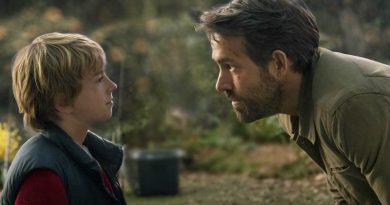The Karate Kid 40th Anniversary Review: A Classic Underdog, Coming-of-Age Story That Still Resonates
Forty years have passed since The Karate Kid debuted on June 22, 1984 — the summer movie season where Indiana Jones and the Temple of Doom, Gremlins and Ghostbusters still dominated the U.S. box office. Despite its enduring popularity until today, thanks to the revived interest through Cobra Kai series and next year’s Karate Kid crossover movie, the 1984 original initially had a soft opening weekend at the time — believe it or not — at No. 5 (!) with just US$5 million in the first three days. And yet, not only did the movie eventually become a huge sleeper hit but also raked as one of the highest-grossing movies of 1984 at US$90.8 million against a US$8 million budget.
So, what makes The Karate Kid such a beloved hit? The success of the 1984 original lies in its many winning factors, one of which includes the mentor-protege dynamics between Pat Morita’s Mr Miyagi and Ralph Macchio’s Daniel LaRusso. The kind of on-screen chemistry that feels genuine, coupled with the two playing off each other well. Pat Morita’s scene-stealing performance is one for the ages and it’s hard to believe he used to be a stand-up comedian before he became a regular in the long-running sitcom Happy Days. He even earned a well-deserved Oscar nomination in the Best Supporting Actor category, though he lost to Haing S. Ngor for The Killing Fields. As Mr Miyagi, he’s an all-encompassing character serving as a mentor, a friend and even a father figure to Ralph, who lives with his single mother (Randee Heller). Not to mention his unconventional training method, particularly during the initial stage including the iconic “wax on, wax off” scene. He also made good use of his comedy background to draw some laughs with his deadpan humour, which gives us memorable one-liners like “In Okinawa, belt mean no need rope to hold up pants.”
Ralph Macchio, who plays Daniel LaRusso, is the kind of teenager that we can relate to. He’s an outsider from Newark forced to cope with the new surroundings after he and his mother move to Reseda, Los Angeles. His frustration doesn’t stop there after he becomes the subject of Johnny Lawrence’s (William Zabka) bullying, a black-belt karate student from John Kreese’s (Martin Kove) Cobra Kai dojo who can’t stand seeing him flirting with his ex-girlfriend, Ali Mills (Elisabeth Shue in one of her earliest roles). Johnny and his friends would go on beating up the hapless Daniel whenever chances they got. It wasn’t until Mr Miyagi came to the rescue and subsequently agreed to teach him karate after he and John Kreese struck a deal by getting Daniel to compete against his students in the upcoming karate championship tournament.
From there, it’s a familiar underdog story that deals with perseverance and overcoming impossible odds. John G. Avildsen, the Oscar-winning director of 1976’s Rocky, uses the same formula in The Karate Kid and it works great in his favour, thanks to his assured direction. Working from Robert Mark Kamen’s screenplay, the underdog angle blends well with Daniel’s coming-of-age angle, which still resonates even after I recently rewatched the movie.
The Karate Kid also benefits from its undeniable feel-good factor that makes you cheer for the good guy, which in this case, refers to Daniel’s eventual challenge against Kreese’s students in the tournament during the climactic finale. The fight scene is well choreographed, notably the showdown between Daniel and Johnny, which culminates in the former’s unforgettable crane kick.
The surprise hit of the 1984 original paved the way for two sequels in 1986 and 1989, both of which were helmed by the same director to varying degrees of success. Pat Morita reprised his role for the fourth time in 1994’s The Next Karate Kid and co-starred alongside then-newcomer Hilary Swank. Then, there was a 2010 remake starring Jaden Smith and Jackie Chan, which turned out to be a bigger-than-expected hit at US$359 million worldwide.





